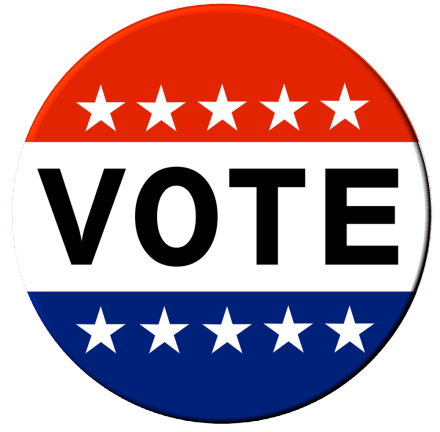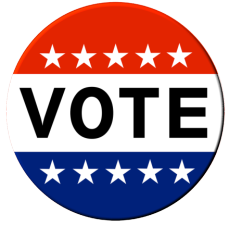Race for president also on primary ballot today
NEW JERSEY. Voters on Tuesday will choose candidates vying to replace Democratic U.S. Sen. Bob Menendez.

Voters in New Jersey on Tuesday, June 4 will choose candidates vying to replace Democratic Sen. Bob Menendez, who is on trial in federal court in New York on corruption charges and has opted not to run in the state’s Democratic primary.
Menendez, who has held the seat for more than 18 years, has said he would consider running in the general election as an independent if he is acquitted.
Presidential primaries will be on the ballot along with primary elections for U.S. House.
The prospect of an open Senate seat already had cascading effects in the state. The early jockeying between first lady Tammy Murphy, who has since suspended her campaign, and front-runner Rep. Andy Kim led to a ruling that eliminated the party line for at least the primary.
The party line, used in all counties except Sussex and Salem, is a ballot design specific to New Jersey that displays candidates endorsed by county parties in one column, which opponents argue creates an advantage for party-backed candidates.
With the party line gone, Kim has appeared to consolidate support statewide. He faces labor leader Patricia Campos-Medina and activist Lawrence Hamm in the primary.
On the Republican side, the Senate primary is among four candidates: hotelier and leading Republican fundraiser Curtis Bashaw, Navy veteran Albert Harshaw, former Tabernacle Deputy Mayor Justin Murphy and Mendham Borough Mayor Christine Serrano Glassner. Serrano Glassner has been endorsed by former President Donald Trump.
In running for the Senate, Kim is vacating the 3rd Congressional District seat that he’s held since 2019.
Trump, a Republican, and President Joe Biden, a Democrat, unofficially sealed their parties’ nominations March 12. They are both on the ballot Tuesday and can earn more delegates. For Trump, Tuesday marks the first primaries since he became the first former U.S. president to be convicted of felony crimes.
New Jersey holds its gubernatorial and state legislative elections in odd years, so there are only federal races in this primary.
Registered party members may vote only in their party’s primary. In other words, Democrats can’t vote in the Republican primary or vice versa. Independent or unaffiliated voters may participate in either primary.
Convention delegates
New Jersey’s 126 pledged Democratic delegates are allocated according to the national party’s standard rules. Twenty-eight at-large delegates are allocated in proportion to the statewide vote, as are 14 PLEO delegates, or “party leaders and elected officials.” The state’s 12 congressional districts have a combined 84 delegates at stake, which are allocated in proportion to the vote results in each district. Candidates must receive at least 15% of the statewide vote to qualify for any statewide delegates, and 15% of the vote in a congressional district to qualify for delegates in that district.
There are 12 delegates at stake in the Republican presidential primary. All delegates will be awarded to the winner of the statewide vote. Most states that hold primaries within 45 days of the national convention agreed that their delegates would not be bound to any particular candidate, per Republican National Committee rules. However, New Jersey chose to keep its delegates bound, prompting the RNC to cut its total delegate count from nearly 50 to just 12.
In the presidential race, the first indications that Biden is winning statewide on a level consistent with the overwhelming margins seen in most other contests held this year may be sufficient to determine the winner.
There is an effort to get Democratic voters to vote for “Uncommitted” to protest Biden’s policies on the Israel-Hamas war in Gaza. Uncommitted will be on the ballot across the state except for a portion of Ocean County, where supporters didn’t field enough delegates.
New Jersey allows absentee ballots postmarked by election day to arrive up to six days later, so the number of absentee ballots cast in the primary will not be known until June 10. A close contest in which the number of absentee ballots could impact the outcome could delay a race call.
New Jersey does not have automatic recounts, but candidates and voters may request and pay for them. The cost of the recount is refunded if the outcome changes.
As of May 1, there were 6,549,568 registered voters in New Jersey. Of those, 38% were Democrats and 24% were Republicans.
In the 2022 primary election, turnout was about 7% of registered voters in the Democratic primary and 5% in the Republican primary. In that election, 49% of ballots cast in the Democratic primary and 20% of ballots cast in the Republican primary were cast before election day.
As of May 28, a total of 247,807 people had cast ballots before Election Day. About 77% of these ballots were cast in the Democratic primary and 23% in the Republican primary.
As of Tuesday, there will be 41 days until the Republican National Convention in Milwaukee, 76 days until the Democratic National Convention in Chicago and 154 until the November general election.
